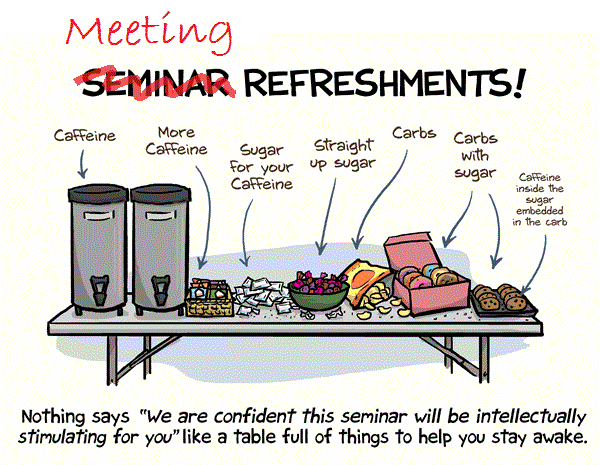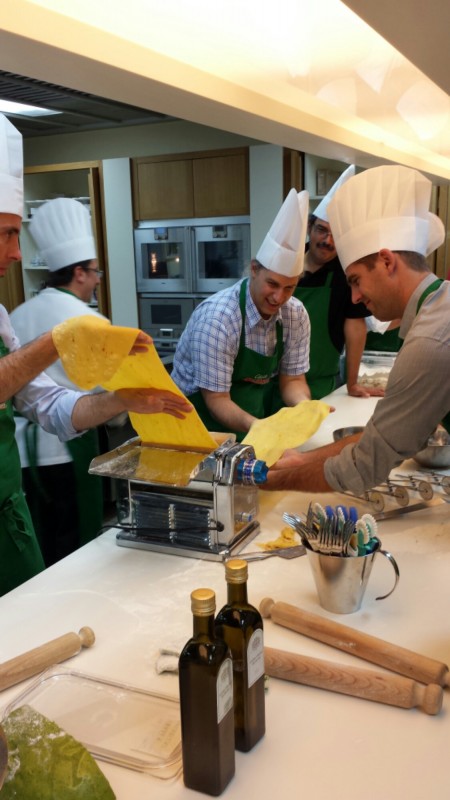Tag: work
The Mozilla Foundation wants to debug scientific code
When ecologist Carl Boettiger wrote a blog post in June calling for greater stringency in the peer review of scientific software in research papers, he hardly expected to stir up controversy. But in 54 comments on the post, researchers have debated how detailed such reviews should be; one said that it was a “trifle arrogant” of Boettiger, of the University of California at Santa Cruz, to insist that computer code attain his stringent standards before publication.
Now an offshoot of the Internet non-profit organization Mozilla has entered the debate, aiming to discover whether a review process could improve the quality of researcher-built software that is used in myriad fields today, ranging from ecology and biology to social science. In an experiment being run by the Mozilla Science Lab, software engineers have reviewed selected pieces of code from published papers in computational biology. “Scientific code does not have that comprehensive, off-the-shelf nature that we want to be associated with the way science is published and presented, and this is our attempt to poke at that issue,” says Mozilla Science Lab director Kaitlin Thaney.
Researchers increasingly rely on computation to perform tasks at every level of science, but most do not receive formal training in coding best practice. That has led to high-profile problems. Some scientists have argued, for example, that the fraudulent findings used as the basis for clinical trials in 2007 would have been exposed much earlier if cancer researcher Anil Potti of Duke University in Durham, North Carolina, had been compelled to publish his data and computer code along with his original papers.
More routinely, incorrect or slipshod code prevents other researchers from replicating work, and can even lead them astray. In 2006, Geoffrey Chang of the Scripps Research Institute in La Jolla, California, had to retract five research papers on crystal structure after finding a simple error in the code he was using, which had been provided by another lab. “That’s the kind of thing that should freak any scientist out,” says computational biologist Titus Brown at Michigan State University in East Lansing. “We don’t have good processes in place to detect that kind of thing in software.”
Mozilla is testing one potential process, deploying the type of code review that is routinely used on commercial software before it is released. Thaney says that the procedure is much like scientific peer review: “The reader looks for everything, from the equivalent of grammar and spelling to the correctness of the logic.” In this case, Mozilla opted to examine nine papers from PLoS Computational Biology that were selected by the journal’s editors in August. The reviewers looked at snippets of code up to 200 lines long that were included in the papers and written in widely used programming languages, such as R, Python and Perl.
The Mozilla engineers have discussed their findings with the papers’ authors, who can now choose what, if anything, to do with the markups — including whether to permit disclosure of the results. Those findings will not affect the status of their publications, says Marian Petre, a computer scientist at the Open University in Milton Keynes, UK, who will debrief the reviewers and authors. Thaney expects to release a preliminary report on the project within the next few weeks.
Computational biologists are betting that the engineers will have found much to criticize in the scientific programming, but will also have learnt from the project. They may have been forced to brush up on their biology, lest they misunderstood the scientific objective of the code they were examining, Brown says. Theo Bloom, editorial director for biology at non-profit publisher PLoS, shares that expectation, but says such reviews may still be useful, even if the Mozilla reviewers lack biological expertise. Yet that would prompt another question: how can journals conduct this type of review in a sustainable way?
The time and skill involved may justify paying reviewers, just as statistical reviewers of large clinical trials are paid. But researchers say that having software reviewers looking over their shoulder might backfire. “One worry I have is that, with reviews like this, scientists will be even more discouraged from publishing their code,” says biostatistician Roger Peng at the Johns Hopkins Bloomberg School of Public Health in Baltimore, Maryland. “We need to get more code out there, not improve how it looks.”
Been in conversations like that

True, so very true

I’ve slightly altered a recent PhD comic strip to make it more relevant to my daily life :)
Casa Buitoni
We went on a team building retreat at Casa Buitoni last week. It was brilliant. Not only did we get a lot of good work done, but we also gelled as a team. We defined a mission statement, core values, a project roadmap and also worked out decision-making processes, org charts, team agreements and best practices. We also ate a cubic buttload of food.
More pictures here: http://www.flubu.com/various_pics/casa_buitoni_sep_2013/
Casa Buitoni is located up in the hills of Tuscany along with the fields of tomatoes, wheat, vegetables, herbs, and olives. It serves as the symbol of Buitoni’s symbol of quality, commitment, and tradition. It was the house of Giulia’s grandson, Giuseppe, and it now serves as a company product development center. This is the place where products are created and sampled.
Soooo much food
Who the fuck steals deodorant?
I’m in Italy for a work strategic retreat. When I packed my suitcase on Sunday night, I packed some toiletteries, my phone charger and my camera charger in the front of my suitcase. I didn’t really give it much thought and checked my bag in at Geneva. I took lots of pictures the first day and tried to recharge my camera, but couldn’t find my charger. OK, thought I, I must’ve left it at home. Later that night, when I went to brush my teeth, I realised that my toothbrush, toothpaste, deodorant and cologne had also gone awol. Now I could believe forgetting one item, but not the whole kit. A bent baggage handler must’ve scooped out my front pocket at the airport. Yay.
In brighter news though, the Italians are trying to kill me with mountains of delicious food.
Random music moment
I’m in Italy, at the Nestlé R&D center in Casa Buitoni, for a team building / brainstorming session with my group. I’ve just had a very good Italian dinner (3 hour affair) and I’m in my room getting ready for bed. Amusingly, somewhere down the hill in the village is a Pink Floyd tribute concert that’s been belting out some pretty good renditions of the classics all evening. I can still hear it through my bedroom windows. Random. Also, kick ass :-)
ZOMG Science!
My job title
I was just asked what my job title was. I was hesitating between a few (*) but in the end, I went with Senior Software Simian.
(*)
Senior Software Therapist
Well-Seasoned Pretender of Doing Hard Work
Corrector Of Wrong People On The Internet
Senior Professional Emailer
I still like the one that my boss uses “Pan-Galactic Overlord of Everything Digital” though. That has a nice touch of class.








